The future of work will involve a series of transitions that will deeply impact people’s working lives, including the digitisation of the economy and shift to net zero. As jobs are created, transformed, and eliminated, workers will need to develop new skills to remain relevant. But what mix of soft, technical, and digital skills will be needed in different sectors or local economies?
Skills frameworks attempt to answer this question by providing information on current and emerging skills demands associated with different jobs. In Singapore, for example, skills frameworks have been co-created by employers, educators, industry associations and unions for strategically important sectors. While Nesta has pioneered the use of machine learning to develop skills taxonomies for the UK based on data from online job adverts.
The RSA is exploring the value of local skills frameworks to support levelling up across the UK. Skills frameworks can encourage employers to invest in more appropriate training and align progression pathways and recruitment with changing industry needs. They can also help learners and workers make better decisions about upskilling and reskilling opportunities and support educators in designing new training programmes.
Together with Southampton City Council, our Cities of Learning and Future of Work programmes set out to develop a local skills framework, to help inform digital badge writing, local learning provision and other interventions that could address skills and employment challenges in the area. This skills framework aims to identify the skills needed to meet the city’s growth ambitions for the maritime, digital, and creative sectors while ensuring all residents have the core skills and capabilities needed to thrive in the future of work.
You can download our Future Skills Framework for Southampton by clicking below.
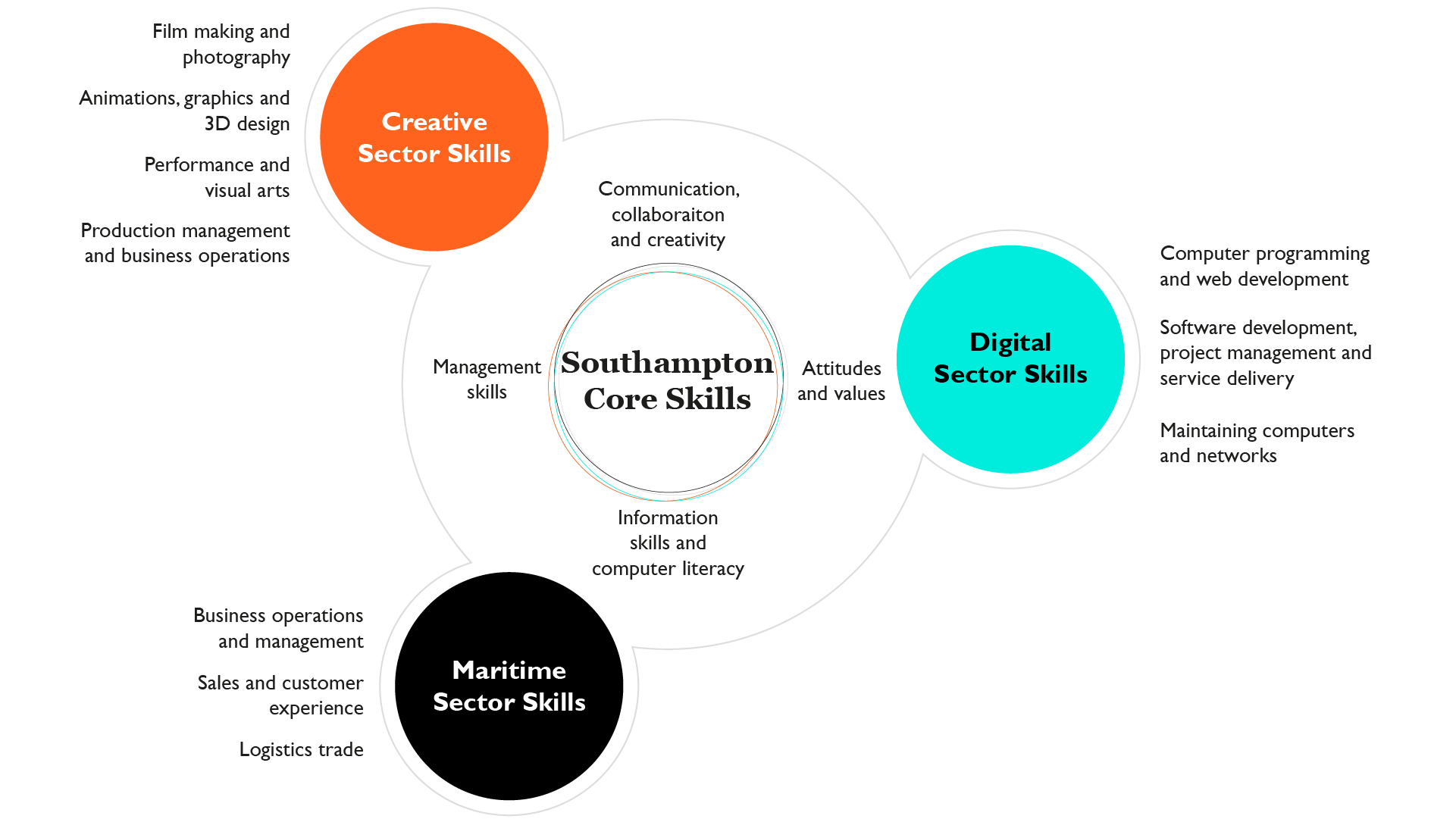
Fig 1. Southampton skills framework overview (RSA analysis of Emsi Burning Glass job posting analytics)
Developing a skills framework
Our analysis leverages big data from over 300,000 online job adverts provided by our research partner Emsi Burning Glass. However, we complement this perspective with qualitative insights from local stakeholders and an analysis of future of work trends.
To develop a core skills framework, we analysed a list of the 250 most in-demand skills in Southampton, filtering out skills that were specific to the most advertised jobs like computer programmers and identifying those that are transferable across a wide range of occupations. We then used the ESCO (European Skills, Competences and Occupations) skills hierarchy to enrich this data set and cluster skills based on broad categories including communication and creativity, management skills and computer literacy. Some skills such as self-motivation and resilience are what the ESCO skills hierarchy describes as attitudes and values (and are often described as non-cognitive skills).
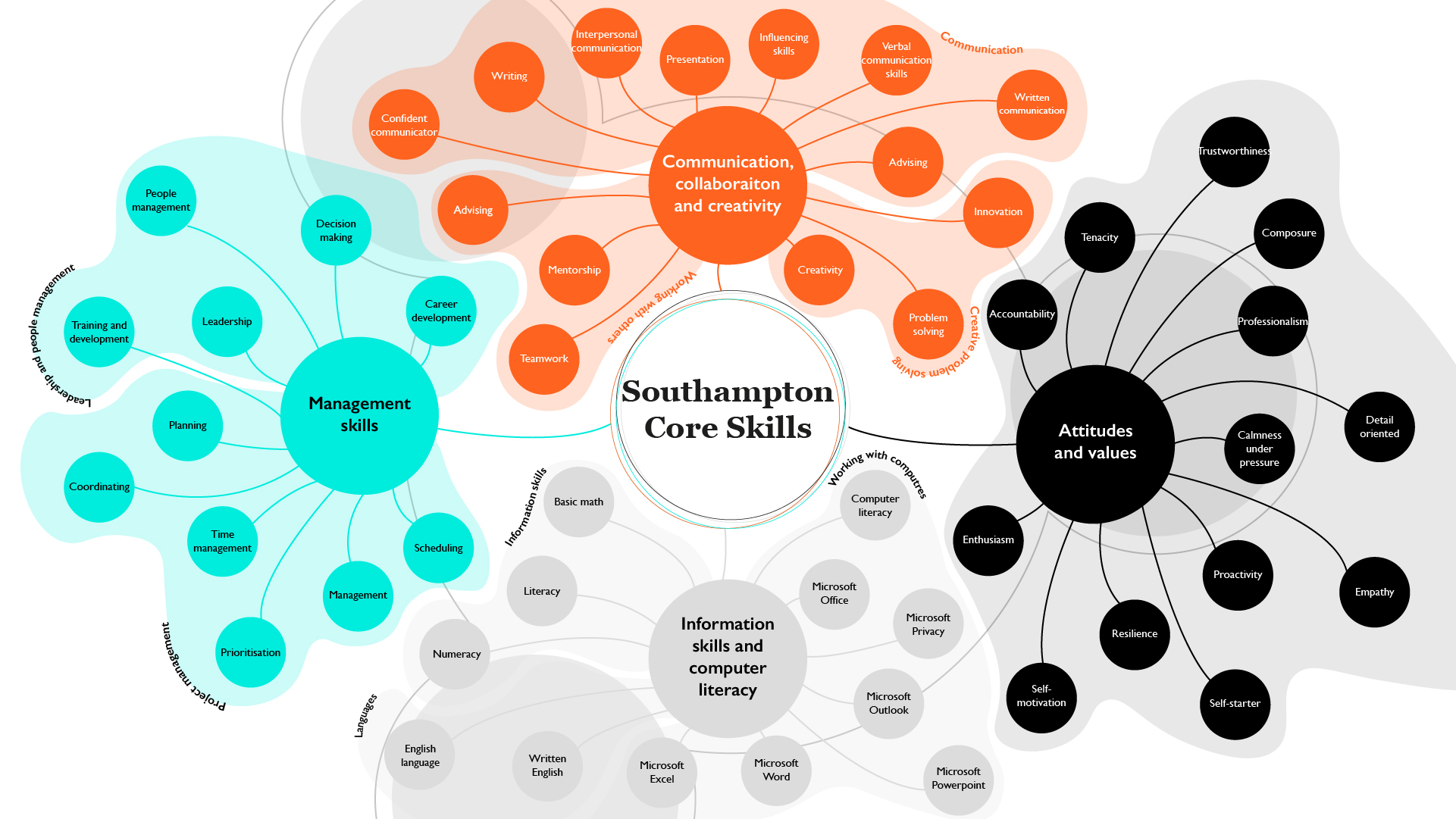
Fig 2. Southampton core skills framework (RSA analysis of Emsi Burning Glass job posting analytics)
To develop sector skills frameworks, we started by analysing employment data to identify occupations that are important to three strategically important sectors: digital, maritime and culture. We then analysed online jobs vacancies data to identify the most important non-core skills for these occupations. In our analysis, we provide insights on how these skills cluster based on broad ESCO categories as well as how they map onto different occupation groups within the sector.
Unleashing digital transformation
Digital roles are some of the fastest-growing in Southampton and will become increasingly important as more traditional sectors undergo digital transformation. The city has attracted large firms such as Starling Bank and is growing its profile as a tech start-up hub. Digital jobs include coders, web designers, IT project managers and cyber security professionals. Our analysis broadly aligns with other evidence on what digital jobs and skills are currently most in-demand, such as those identified by Tech UK’s Tech Jobs Barometer. JavaScript and C# are the most in-demand programming languages while agile software development methodologies are important across most occupations in the sector.
However, our analysis does not capture many of the skills associated with emerging technologies. For example, the World Economic Forum suggest demand for roles such as robotics engineers and Internet of Things (IoT) specialists is also growing.
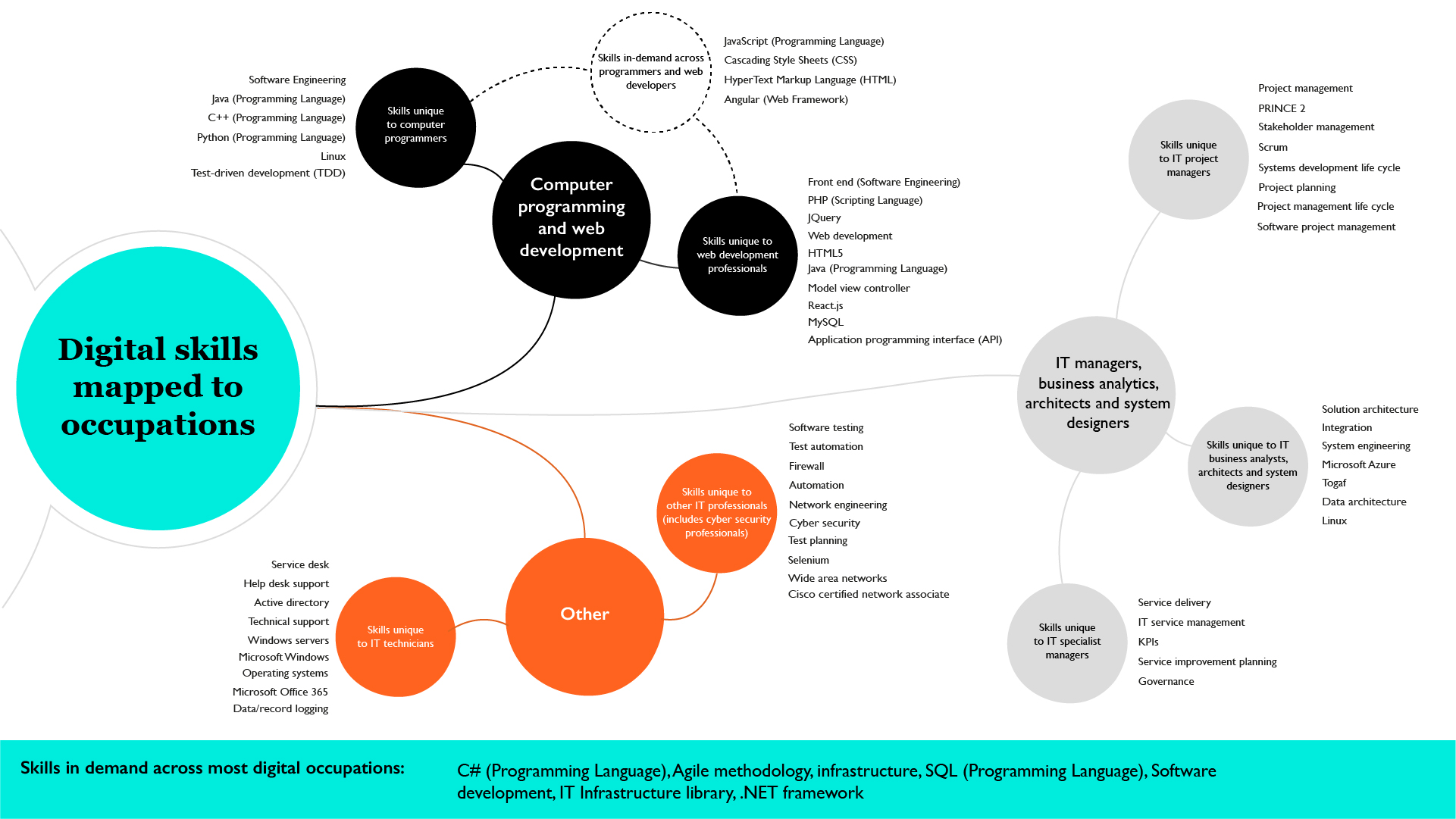
Fig 3. Southampton digital skills mapped to occupations (RSA analysis of Emsi Burning Glass job posting analytics)
Futureproofing the maritime sector
Maritime is at the heart of Southampton’s economy. Freeports have been identified as a major opportunity and the city also has ambitions to lead in the development of autonomous vessels. Maritime includes a diverse range of industries, and our analysis focuses on shipping and ports and marine engineering but also includes green jobs such as environmental scientists that will be critical as the industry works to reduce emissions.
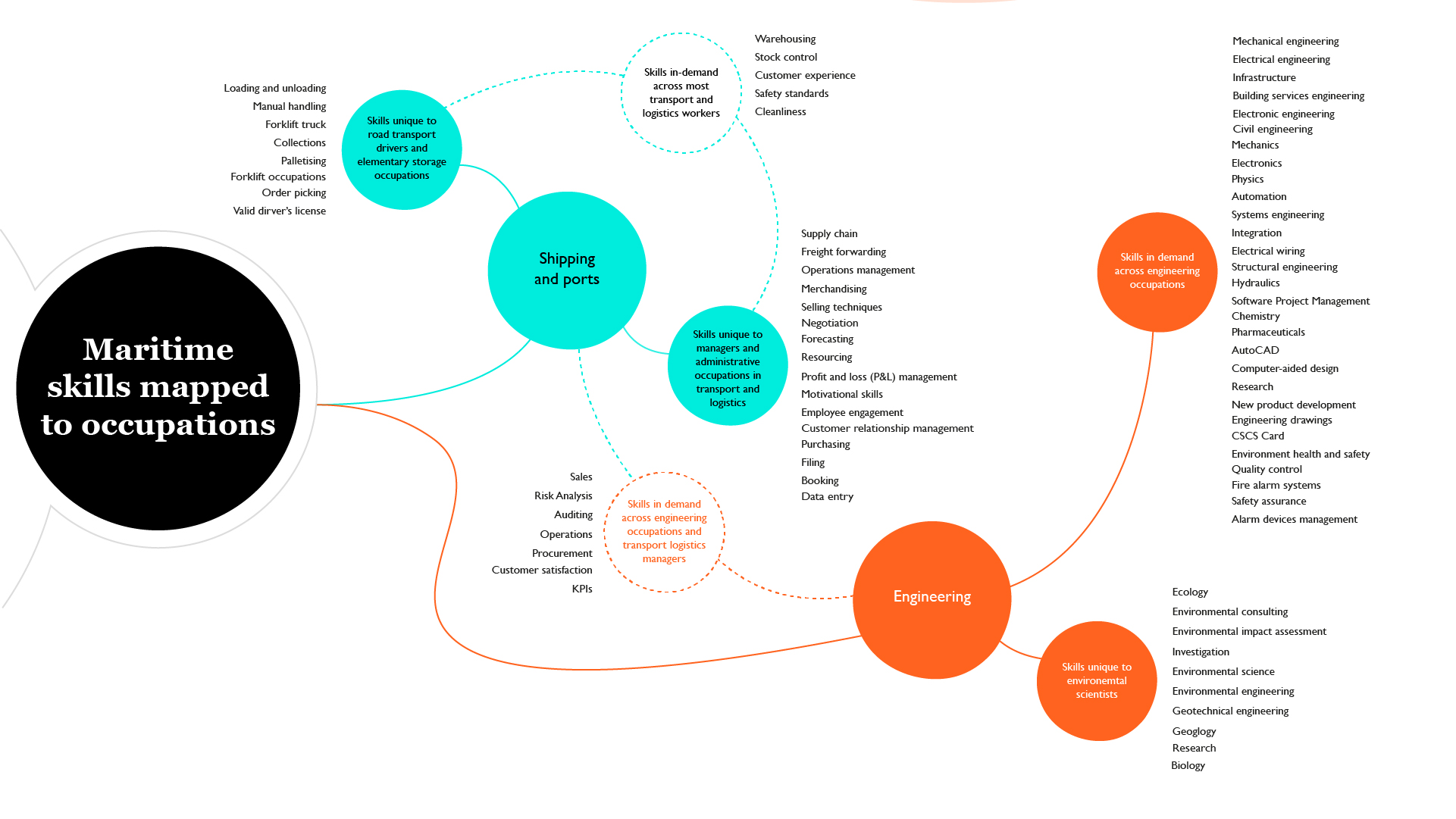
Fig 4. Southampton maritime skills mapped to occupations (RSA analysis of Emsi Burning Glass job posting analytics)
Automation is expected to transform many jobs in the sector and create new skills demands in the future. Local stakeholders we engaged with suggested that the industry ’still relies heavily on paper-based systems and needs to digitise to increase productivity’. However, the UK Maritime Services Review has suggested that a ShipTech industry is starting to emerge around blockchain and cloud computing. We, therefore, expect many of the skills highlighted in our digital framework, such as those relating to cyber security, will also be critical for the maritime sector.
Realising cultural capital
Southampton is bidding for UK City of Culture 2025. The 2021 award is expected to have created 900 jobs in Coventry and contributed £211m to the economy. Longer-term, the aspiration is that the bid will make Southampton a more vibrant place to live, attract businesses and skilled talent, as well as help to improve graduate retention. Many of the most in-demand skills in the creative arts relate to filmmaking and photography as well as animation and 3D design. Alongside technical skills in media production, a range of specialist software skills are required.
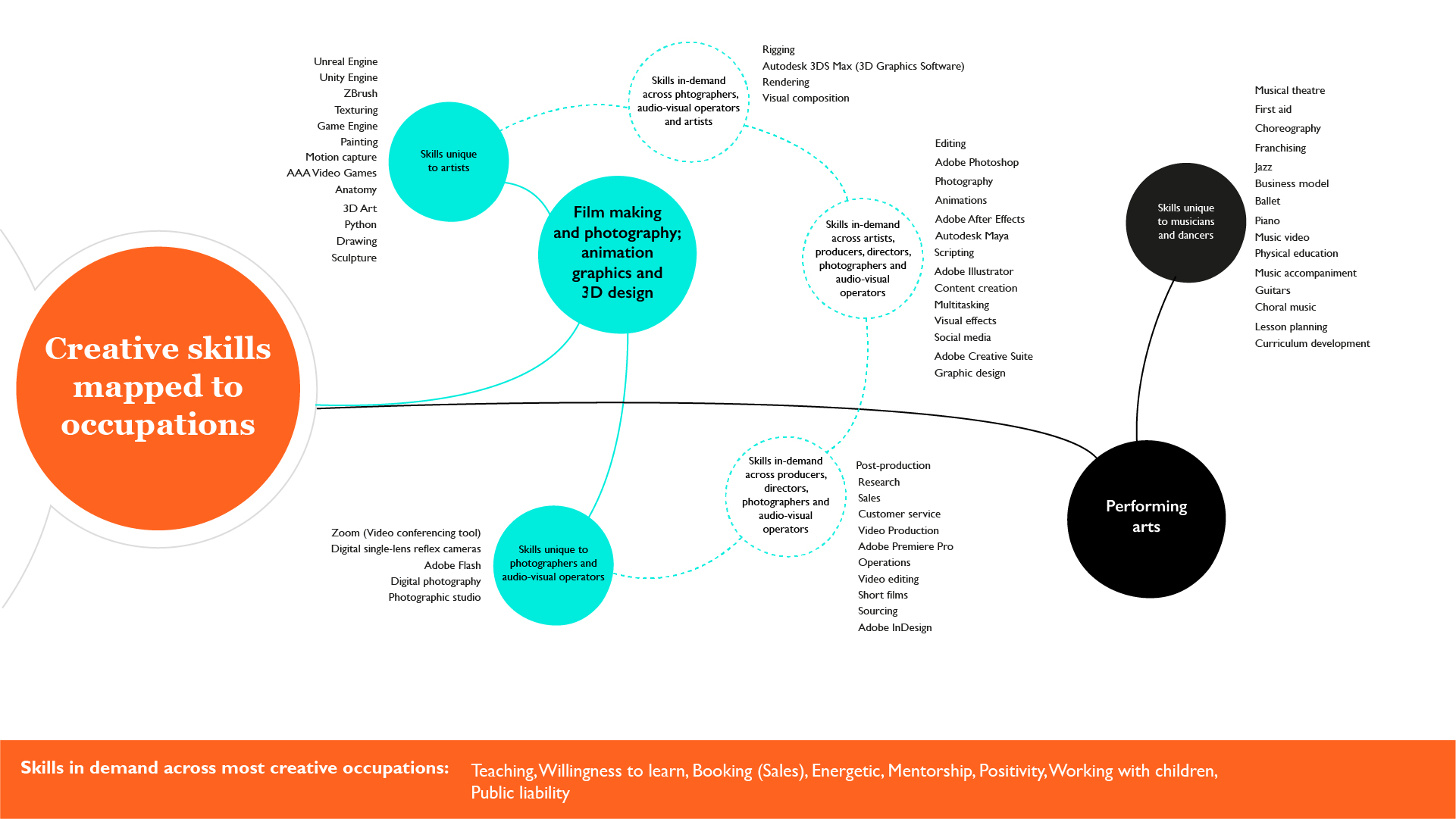
Fig 5. Creative skills mapped to occupations (RSA analysis of Emsi Burning Glass job posting analytics)
Despite machine learning being used to create original artistic content such as paintings and classical music, creative roles are likely to remain resilient to automation. Previous RSA research has found that creative arts and entertainment were one of the fastest-growing industries over the last decade. Some practitioners even argue that we should not overestimate the impact new tech will have on skills demands. Fiona Morris, CEO and Creative Director of The Space suggests that: “With regard to immersive technologies like VR and AR, arts organisations get distracted by the operation of the technology rather than focus on the far more important fact that they already have extensive knowledge of how to create immersive experiences and direct audience attention within a narrative.”
However, the sector has been hit hard by the pandemic, with theatres and nightclubs across the UK unable to turn a profit while adhering to social distancing. The pandemic may have also created new skills demands in the sector, including a greater focus on engagement via social media and online or hybrid experiences.
Help us shape the future of skills and learning
A key learning from this research is that a mixed-method approach to skills foresight is critical: new data sources can provide a much richer and more timely perspective on skills demands than traditional labour market intelligence, but this is perspective is still rooted in the business requirements of today, rather than possibilities for the future.
Our ambition is to develop an approach to skills foresight that is expansive and participatory. One that encourages optimistic perspectives on the impacts of technology, sustainability and other future of work trends and new possibilities for jobs, business models and markets. We also hope to involve workers more directly in imagining and designing the jobs of the future – to both strengthen worker voice in a changing labour market and unlock insights from the shop floor that can help improve job quality and productivity.
The RSA is exploring the value of local and sector skills frameworks to support levelling up across the UK by supporting learners and workers to develop the skills that businesses need for the future of work.
Sajid Butt, Strategic Skills Manager at Southampton City Council believes agile skills ecosystems are the way forward.
A range of inputs are needed to direct workforce planning and development, training provision and optimisation of social capital; all of which a skills framework can provide. We will refine our approach with the RSA to ensure our work remains relevant and robust to meet the city’s growth ambitions. New tools and methods are needed to tackle the skills-jobs mismatch, drive productivity and performance gains as well as create inclusive approaches for residents to secure meaningful employment with good pay and progression prospects. Here in Southampton, we are giving ourselves the opportunity to do just that.
If you’re interested in contributing to our ongoing skills foresight research or developing a skills framework for your organisation, sector or local economy why not consider joining our place-based learning network?
Related articles
-
Young at heart
Journal
Jonathan Prosser
Becoming a nation with children at its centre in 10 courageous steps.
-
Open RSA knowledge standards
Blog
Alessandra Tombazzi Tom Kenyon
After investigating ‘knowledge commons’, we're introducing our open RSA standards and what they mean for our practice, products and processes.
-
Worlds apart
Comment
Frank Gaffikin
We are at an inflexion point as a species with an increasing need for collaborative responses to the global crises we face.




Be the first to write a comment
Comments
Please login to post a comment or reply
Don't have an account? Click here to register.